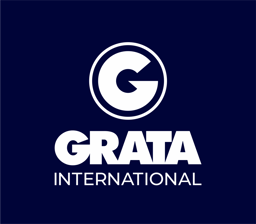
GRATA International Team
What do you see as the main points that differentiate GRATA International from your competitors?
GRATA International’s journey began as a Kazakhstani law firm, a testament to our resilience and adaptability, shortly after the country gained its sovereignty. In the late 1990s, we embarked on a geographical expansion, initially focusing on the Central Asian and Caspian regions.
Today, we have an extensive network of offices in over 20 countries, operating under one system and platform. This allows us to provide services to global clients on the most complex multi-jurisdictional projects.
Our unique position in the strategic region of the ex-Soviet bloc, where most international law firms lack sufficient capacity, sets us apart from our competitors. Additionally, we have established marketing desks in key legal hubs such as New York, London, and Beijing.
For over 30 years, our lawyers have successfully combined a deep understanding of national mindset and legislation with international standards. Our specialists continuously enhance their expertise to respond to evolving business and client demands.
The firm’s key strength lies in a broad spectrum of services combined with a deep specialization in specific business areas. Our clients can access legal services in 8 industries and 18 practice areas. Reputable legal directories confirm the quality of our services and constantly rank us among the leading international and domestic law firms.
Importantly, we offer a tailor-made approach to meet each client’s unique expectations and competitive fees.
Which practices do you see growing in the next 12 months? What are the drivers behind that?
With digital transformation gaining momentum, we see several practice areas growing next year: e-commerce, digital law, cybersecurity, data protection, and AI. Continuous legislation development and change and increased control by the supervising authority force businesses to study these areas of law more carefully to comply with the statutory requirements.
Moreover, given the geopolitical situation, Kazakhstan could act as a critical investment hub for international businesses and banks in the CIS region, fostering growth in M&A and Project Finance practice areas.
What's the main change you've made in the firm that will benefit clients?
Our firm has meticulously cultivated a range of specializations spanning various branches of law and economic sectors. This comprehensive understanding has allowed us to grasp the intricacies of special legislation and its practical application and master the detailed regulation within specific business areas. As a testament to our expertise, we have developed the Acting Law of the AIFC, a Flagship product in the Central Asian region.
Additionally, we have become flexible in our offline and online cooperation with our clients to effectively meet our client's needs and provide support regardless of the mode of communication or interaction.
Is technology changing the way you interact with your clients, and the services you can provide them?
GRATA International has been using new technologies for decades. We started using Google products, Skype, and others when they appeared on the market, which helped us enhance communication with clients.
Our firm has also been using remote workplace policies and techniques for two decades, which allowed a seamless transition to an online work approach during the pandemic.
At GRATA, our integrated CRM system is more than just a tool. It's a testament to our commitment to our clients. This system allows us to assist clients on a one-window basis, providing multi-jurisdictional advice for global clients. By centralizing our approach, we streamline communication and ensure our clients’ needs are met efficiently, making them feel valued and prioritized.
And indeed, technologies enable us to stay connected with our clients wherever and whenever they need our assistance. Whether through video conferencing, email, or other digital platforms, we can provide services from anywhere worldwide, ensuring timely and practical support.
Can you give us a practical example of how you have helped a client to add value to their business?
We deliver legal support during redomicilation to the Astana International Financial Center (a Kazakhstani place with a common law system), which helps international and foreign clients save their businesses from negative geopolitical impact. Additionally, redomicilation allows the clients to get tax benefits and to structure their corporate governance in more suitable ways, considering the world's geopolitical situation.
Our successful invalidation of a competitor's invention patent has opened up new avenues for our client. It has not only cleared the path for our client to offer its product for sale in Kazakhstan but has also removed a significant barrier to market entry, paving the way for accelerated business growth.
We also won an administrative court case and overturned a court ruling holding our IT client administratively liable after winning a court case for this client on debt collection.
Another notable example is when we supported and advised one of the world's most considerable FMCG companies during its months-long negotiations with landlords for office relocation in Kazakhstan, ensuring a smooth transition to new office premises and minimal disruption to business operations.
We also extensively advised one of the world's top medical equipment manufacturers on enhancing its sales and promotional activities in Kazakhstan from a tax and legal perspective, optimizing and unifying large commercial contracts/policies for Central Asia and Caucasus countries, and advising another one of the world's top-3 medical equipment manufacturers on transferring a big data archive to Kazakhstan.
Moreover, we succeeded in winning an administrative court case for a world-leading provider of sustainable productivity solutions on delisting it from the governmental register of blacklisted suppliers.
Are clients looking for stability and strategic direction from their law firms - where do you see the firm in three years’ time?
That is a real trend that clients do seek stability and strategic direction from their law firms, especially in an ever-changing legal and business landscape.
In three years, we see our firm strengthening its position as a go-to firm for complex legal matters, both domestically and internationally. We also plan to expand to new jurisdictions, deepen our industry expertise, and improve services to be more beneficial for our clients.

